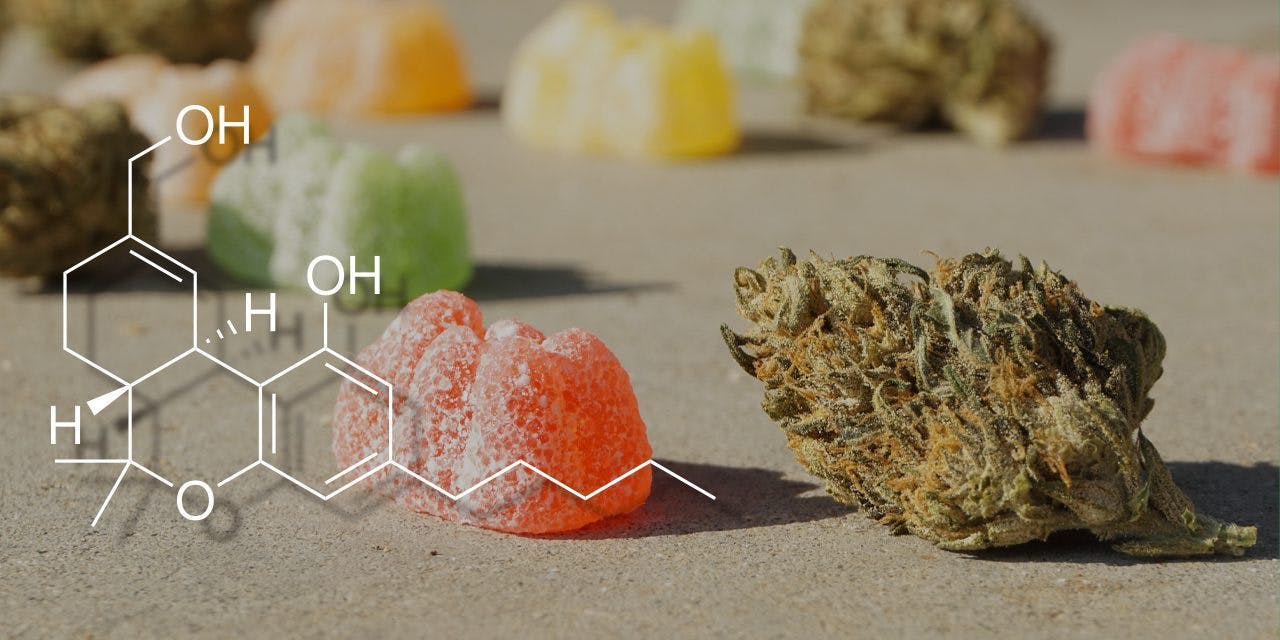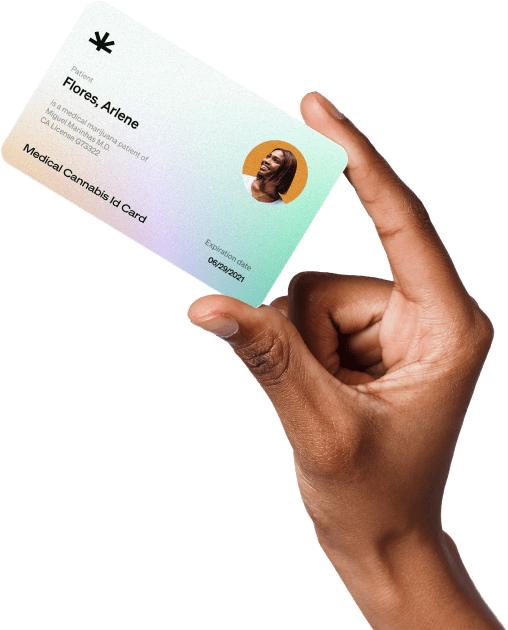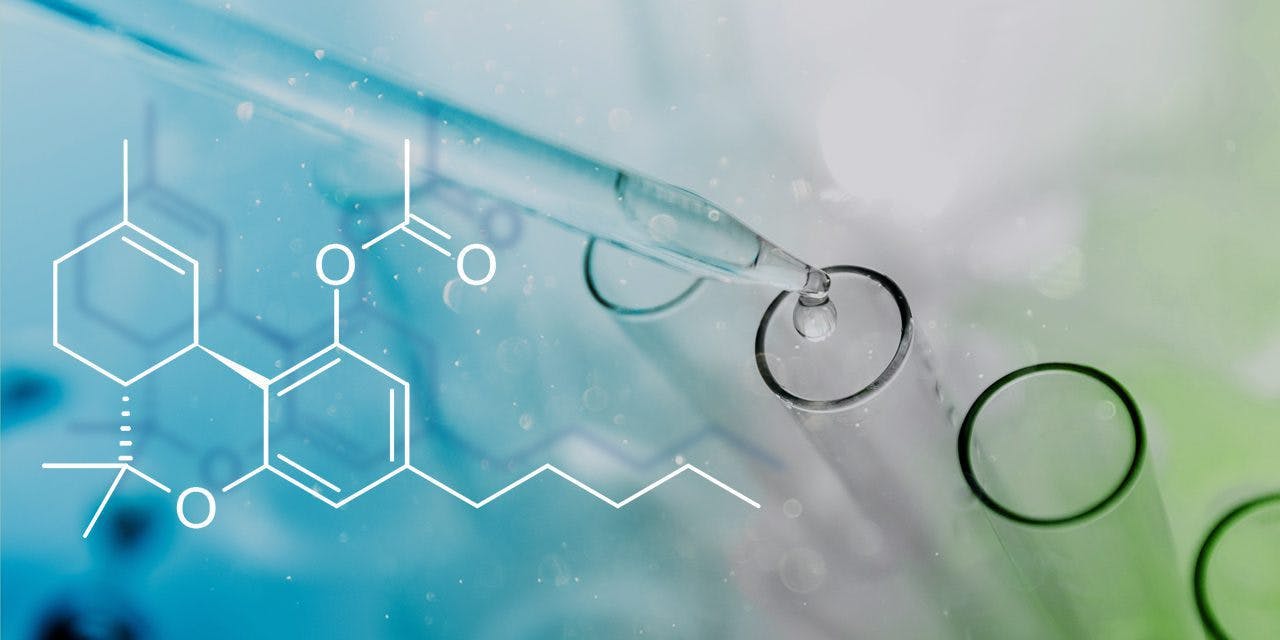What Is 11-hydroxy-THC, Exactly?

Article written by

Dipak HemrajHead of Research and Education
Content reviewed by

Dr. Lewis JasseyMedical Director - Pediatric Medicine
When you eat a product containing THC, your liver will process the THC and convert it into 11-hydroxy-THC. 11-hydroxy-THC (11-OH-THC) is the main active metabolite of THC.
11-hydroxy THC has a psychoactive effect similar to THC but has a faster onset, and it may be particularly effective for people suffering from chronic pain. However, the body’s absorption rates of 11-hydroxy-THC are relatively low, and the compound is not easy to keep stable outside of using solvents.
Tetrahydrocannabinol (THC) may be the better option for using medical cannabis for pain and stress, but 11-hydroxy THC does have its uses, especially when it comes to inflammation. Unfortunately, the metabolite has not yet been studied in any great detail for its medicinal and therapeutic properties, but this is the case for THC as well.
Get your medical marijuana card
Connect with a licensed physician online in minutes.
What Is 11-hydroxy-THC?
11-hydroxy-THC is the third form of a chemical found in raw cannabis. It will start as THCA (tetrahydrocannabinolic acid) in fresh cannabis, converted into THC after aging and heating. When consumed, THC is metabolized by the liver into 11-hydroxy-THC and then 11-nor-9-carboxy-THC.
Eating THC-infused edibles increases the amount of 11-hydroxy-THC available in the blood because oral consumption allows THC to pass through the liver first. THC passes through the liver first, called the “first-pass effect” or “first-pass metabolism.” The liver enzyme CYP2C9 is responsible for metabolizing THC.
Interestingly, when cannabis is consumed in this way, less THC makes its way around the body, and more THC is excreted. However, as the THC passes through the liver first, it is more readily converted into 11-hydroxy-THC. 1 mg of THC consumed orally can feel more potent than 1 mg of inhaled THC.
Inhaling THC via vaping or smoke means THC goes through the lungs and straight into the blood, so the liver doesn’t get to convert as much THC into 11-hydroxy-THC.
How It Impacts the Human Body
11-hydroxy-THC is thought to be 2-3 times more potent than THC and could have significantly more significant psychoactive effects. Orally consumed THC also needs to be digested first, so it can take longer for the effects to take about 1-2 hours.
There is little research into how 11-hydroxy THC affects the brain and the body. The increased duration of time edibles have an effect for and the potentially greater psychoactivity of 11-hydroxy THC suggests that it could help treat chronic pain and insomnia. However, those who are not tolerant of THC may find the effects overwhelming.
How to Avoid Consuming Too Much 11-hydroxy-THC
Slow-and-low is the ideal way to go when it comes to avoiding the over-ingestion of THC. We recommend starting with a dosage of around 2 – 3 mg, waiting for an hour or two to see what effect it has, then consuming 2 – 3 mg more if needed. You can always go forward, but you cannot go back.
It is easy to think, “This edible isn’t having any effect on me,” and then start eating more. The fact that so many edibles are sweet treats makes eating them all at once particularly enticing. However, it is best to avoid doing this, as many have become overly intoxicated this way. Having some non-cannabis (and ideally wholesome and healthy) treats to hand can help prevent overindulgence.
Check out our blog here for tips on counteracting a negative experience.
Download Our Tips For Minimizing Negative Effects
Get Your Medical Card
Connect with a licensed physician online in minutes.
Frequently Asked Questions
Why do people say the high from eating edibles is different?
The “high” you get from edibles is different from inhaling cannabis because THC passes through the digestive system and liver first, meaning a greater amount of THC is converted into the more psychoactive 11-hydroxy-THC (11-OH-THC). Many people find that eating decarboxylated cannabis has a stronger effect than inhaling cannabis. The effecgts of edibles tend to last longer, too.
Why do cannabis edibles seem to have little to no effect on me?
Everyone has a different metabolism, so how one person processes THC can differ from how another person metabolizes THC. Genetic differences in liver enzymes like cytochrome P450 can affect how the body metabolizes drugs and medications, cannabis included.
Other variables such as diet and what you’ve had to eat recently, body-mass index (BMI), individual tolerance, and activity levels can all affect the experience you have on edibles. The presence of other cannabinoids and terpenes, like cannabidiol (CBD) and beta-caryophyllene, can also affect the overall experience, as CBD can dampen THC’s psychoactivity to some extent.
For more information on dosing medical cannabis, check out our guide here.



